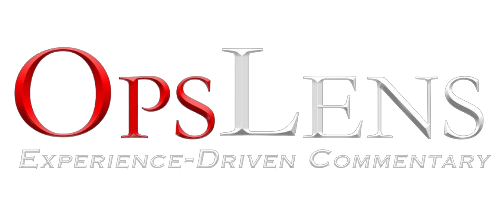Do encyclopedias like Wikipedia or news organizations like NPR exist to tell us the truth, to inform us about reality? Perhaps it’s not so simple anymore.
The recent example of the former CEO of Wikimedia and new CEO of NPR, Katherine Maher, is a case in point.
A pair of Maher’s speeches have been making the rounds on social media, and not without good reason. In her talking points, Maher says that the idea of objective truth is a stuffy, antiquated, and culturally-constructed notion that must give way to the mature, enlightened view that there are “many truths.” This is pure subjectivism of a rather bland and unsophisticated flavor. I’ve definitely tasted more gourmet (though still poisonous) versions of this stale philosophical dish.
At the time that she ran the most popular encyclopedia in the world, Maher even said, straight-faced, that we shouldn’t aim for the truth:
Perhaps for our most tricky disagreements, seeking the truth and seeking to convince others of the truth might not be the right place to start. In fact, our reverence for the truth might be a distraction that’s getting in the way of finding common ground and getting things done.
Lacking, perhaps, the required enlightenment, I can’t help questioning: but aren’t encyclopedias and news outlets intended to inform people about the truth? Isn’t that the whole point? Isn’t that what they’re supposed to “get done”? And if such an organization is not focused on truth, then what is it focused on?
For the postmodernists, reality is not something we discover or receive; it is something we construct through force of will. Postmodern philosophy, which denies the knowability of reality, seems to go hand-in-hand with the pursuit of power. Hence the strange and unholy marriage between post-modernism and Marxism that has spread the infection of wokeism through our institutions, which views the world not through the lens of truth (which it denies) but through the lens of power dynamics, of oppressor and oppressed.
It’s as if modern academia got to the end of its project of dismantling the idea of objective truth only to realize it had thereby abolished the reason for its own existence (back in the unenlightened ages, universities and the press existed for the pursuit of truth). Modern intellectuals looked at each other blankly, and said, “So if we’ve proven there’s no truth, what are we even here for?” One bright fellow responded, “I dunno. Politics?” “Umm…I guess. Yeah, that’ll work. Politics. Know any political writers, anybody?” “Uh, how about this guy Marx?”
I kid, of course, but this rejection of truth and the resulting obsession with power has serious consequences.
The muddled argument, as best I can make out, tries to suggest that we’d be better off setting aside the pursuit of truth in favor of what will allow us to “find common ground” and “get stuff done.” Our “beliefs” must be kept apart from “the facts” (even though a belief, by definition, is what someone thinks is a fact), and we should lower our expectations to just figuring out “the best of what can be known right now.”
There are several problems with this. But in the first place, Maher does not explain what, exactly, we need to get done so urgently that we must sacrifice truth for it—or even how that would be possible. Obviously, without some sense of the way things are (truth), we can have no clear idea of how things ought to be, of what we are trying to accomplish and why. Without a shared map (truth), we can’t possibly agree on a destination or how to get there. But Maher addresses none of this.
The truth is (I use the term intentionally and without apology) that Maher and those like her want us to embrace this malleability of truth because it allows them to redefine the world.
Maher showed her hand when she explained that it’s this bothersome thing “truth” that has gotten in the way of effective climate action, a favorite project of the elites. She further showed her hand when she exasperatedly lamented the “disinformation” and “mistruths” and “distrust of health guidance” that circulated during the COVID affair.
But if there are many truths as Maher says, how can there be “mistruths”? She doesn’t explain. It seems that all this about “many truths” of equal value and setting aside one’s beliefs suddenly doesn’t apply when it comes to some cherished institutional narratives, programs, and ideologies. In other words, truth becomes what is expedient for the agenda.
In the final analysis, Maher and her ideological companions preach that there is no truth because they wish to mold the truth in their own image. They are the conditioners described by C.S. Lewis in The Abolition of Man, who want to shape the world and humanity to their own design:
But the man-moulders of the new age will be armed with the powers of an omnicompetent state and an irresistible scientific technique; we shall get at last a race of conditioners who really can cut out all posterity in what shape they please. … It is not that they are bad men. They are not men at all. Stepping outside the Tao [objective truth], they have stepped into the void.
Displeased with reality as they find it, the conditioners reject the very notion of reality, assault the foundations of the world, seek to reduce it all to rubble so that they can construct the towers of a brave new world entirely of their own making.
—
Image credit: “Closing ceremony of Wikimania 2017” by Freddy2001 on Wikimedia Commons, CC BY-SA 3.0. Image cropped.
